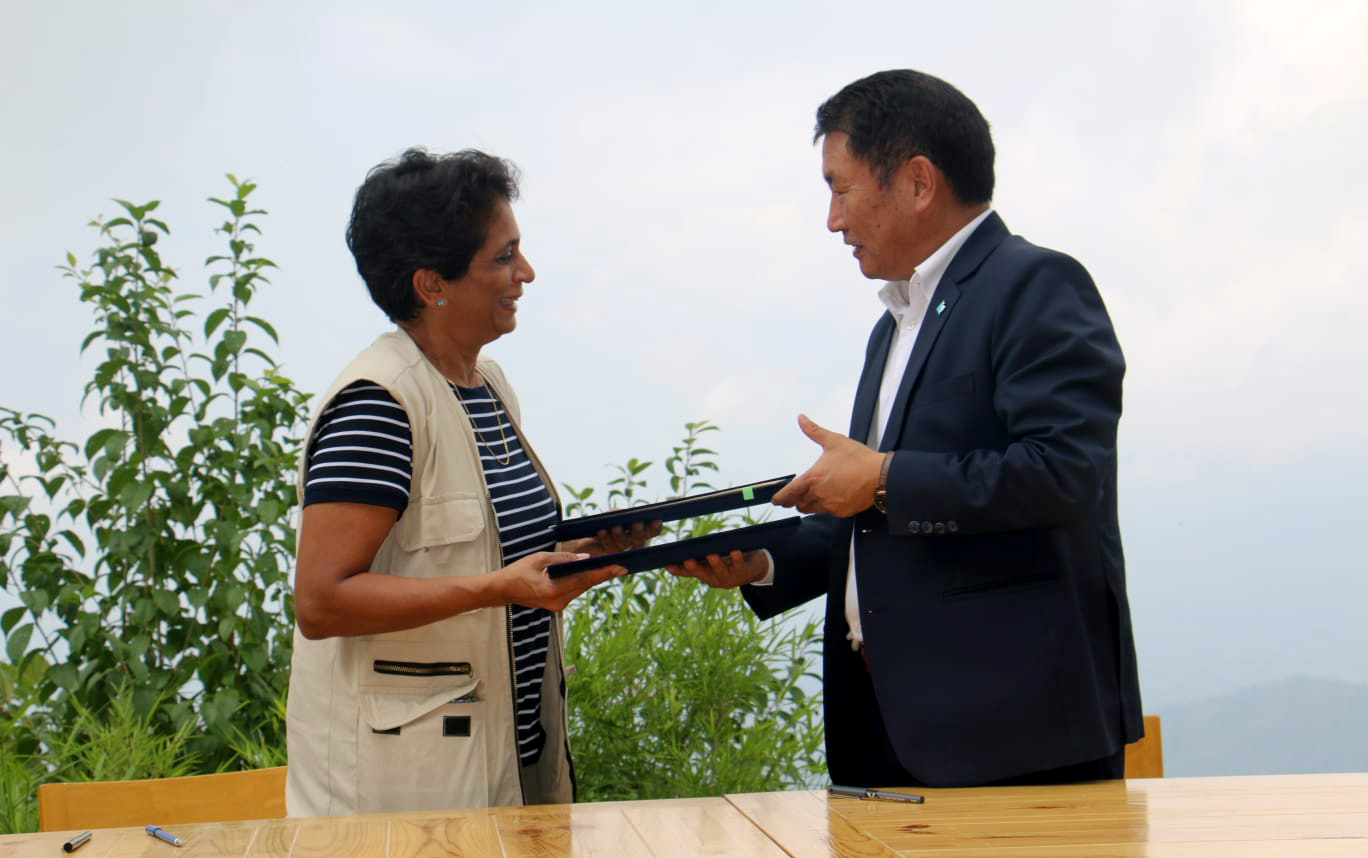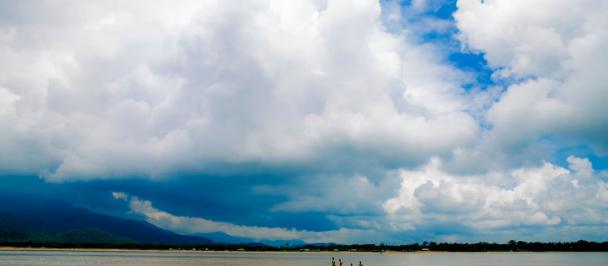Bhutan
UNDP and ICIMOD sign an agreement to build resilience in the Hindu Kush Himalayan countries
June 9, 2022

Kanni Wignaraja, UN Assistant Secretary General, UNDP Assistant Administrator and Regional Director for Asia and the Pacific and ICIMOD Director General Dr. Pema Gyamtsho
9 June 2022: The United Nations Development Programme (UNDP) and International Centre for Integrated Mountain Development (ICIMOD), headquartered in Nepal, entered into a partnership to promote sustainable development in the Hindu Kush Himalayan countries. UN Assistant Secretary General, UNDP Assistant Administrator and Regional Director for Asia and the Pacific, Ms. Kanni Wignaraja and ICIMOD Director General Dr. Pema Gyamtsho signed a Memorandum of Understanding (MoU) to this effect on 9 June 2022.
Under this MoU signed in Pokhara, UNDP and ICIMOD will collaborate to establish a framework for regional cooperation between the organizations to develop and share knowledge, promote capacity development, develop policies and practices, and enhance collaboration in the Hindu Kush Himalayan countries.
“I am pleased to sign this agreement to deepen our long-standing partnership to build resilience in the Hindu Kush Himalayan countries,” said Ms. Wignaraja. “Addressing complex challenges facing the region requires transboundary cooperation among the countries sharing the same river basins. In the case of the Himalayas, this would need to cover the entire Ganges River basin, involving China, Nepal, Bangladesh, and India. We would encourage the sharing of climate data and technology; climate security and risk sensitivity planning; and cross border financing and insurance for flood resistant infrastructure and coverage of loss and damage.”
Speaking after the signing of the MoU, Dr. Pema Gyamtsho, Director General, ICIMOD said: “This is a game-changing partnership arrangement that will enable UNDP and ICIMOD to work together in the HKH region by drawing on their respective strengths and comparative advantages. The urgency of actions required to address climate change, biodiversity loss and air pollution warrants this level of collaboration and scaling up.”
The MoU signed between UNDP and ICIMOD expresses commitment to explore and undertake joint initiatives in the areas of climate, water, biodiversity and nature conservation, transboundary climate risk reduction and adaptation to climate change, capacity building and technology transfer.
The partnership will also focus on transboundary climate risk reduction and adaptation to climate change through data sharing and a joint strategy to enhance resilience, socio-economic security, and food security.
Notably, in 2020, a joint report by UNDP and ICIMOD stated that due to rapid melting of glaciers in the Himalayas, new glacial lakes were forming, and existing ones were getting larger, increasing the risks of glacial lake outburst floods (GLOF). At least 47 glacial lakes in the Koshi, Gandaki and Karnali river basins of Nepal, India, and the Tibet Autonomous Region of China were classed as potentially dangerous. In Bhutan, of the 567 glacial lakes in the country, 17 have been identified as potentially dangerous lakes that could cause GLOF.
Addressing these risks requires substantive transboundary and international cooperation, in terms of finances, data and technology. In this context, the two organizations will also collaborate in mobilizing resources to tackle these complex development challenges, including GLOF risks, in the region by leveraging global and regional climate and biodiversity financing windows to benefit mountain communities and ecosystems.
Some other areas of partnership include promoting capacity building and technology transfer through development of training programmes for various target groups and knowledge exchange between countries in the region.
The partnership paves the way for increased collaboration between UNDP in eight Hindu Kush Himalayan countries – Afghanistan, Bangladesh, Bhutan, China, India, Myanmar, Nepal and Pakistan – and ICIMOD on both regional and country-level climate actions.
UNDP and ICIMOD have long been partnering to tackle the climate crisis through joint research, capacity building, and adaptation and mitigation activities.
About UNDP:
UNDP works in about 170 countries and territories, helping to eradicate poverty, reduce inequalities and exclusion, and build resilience so countries can sustain progress. In Bhutan, UNDP has been working with the Royal Government and people of Bhutan since 1973 to accelerate the country’s development results through innovation, digitalization, development financing, partnerships, cutting-edge global knowledge and technical expertise.
About ICIMOD:
The International Centre for Integrated Mountain Development (ICIMOD) is a regional intergovernmental learning and knowledge sharing centre serving the eight regional member countries of the Hindu Kush Himalaya – Afghanistan, Bangladesh, Bhutan, China, India, Myanmar, Nepal, and Pakistan – and based in Kathmandu, Nepal. For media inquiries: Neraz Tuladhar - media@icimod.org
For more details, contact us at: https://www.icimod.org/get-involved/contact-us/

 Locations
Locations



